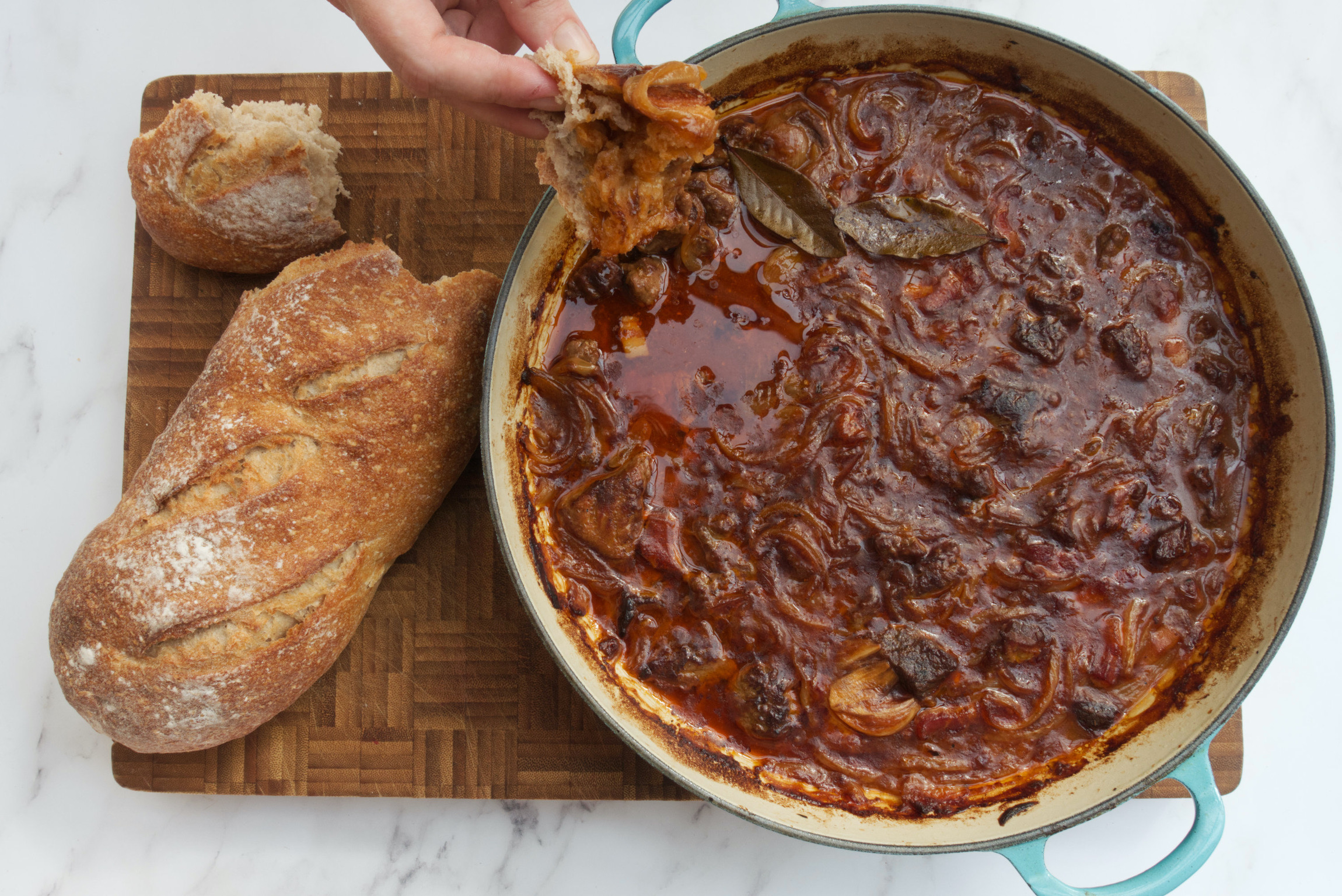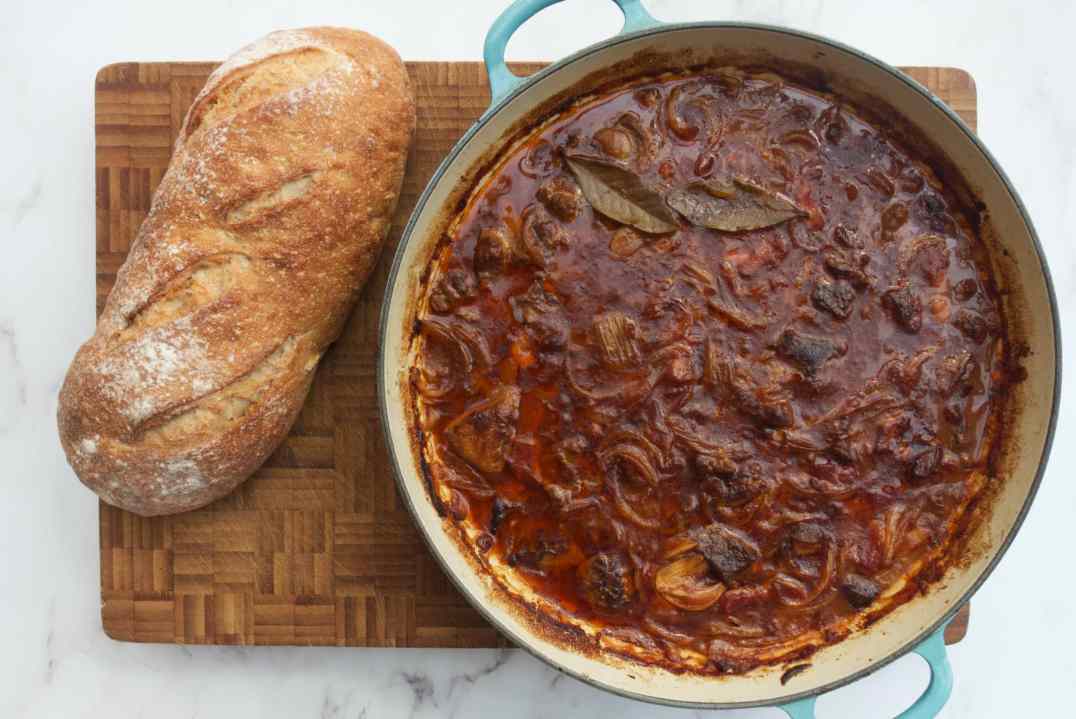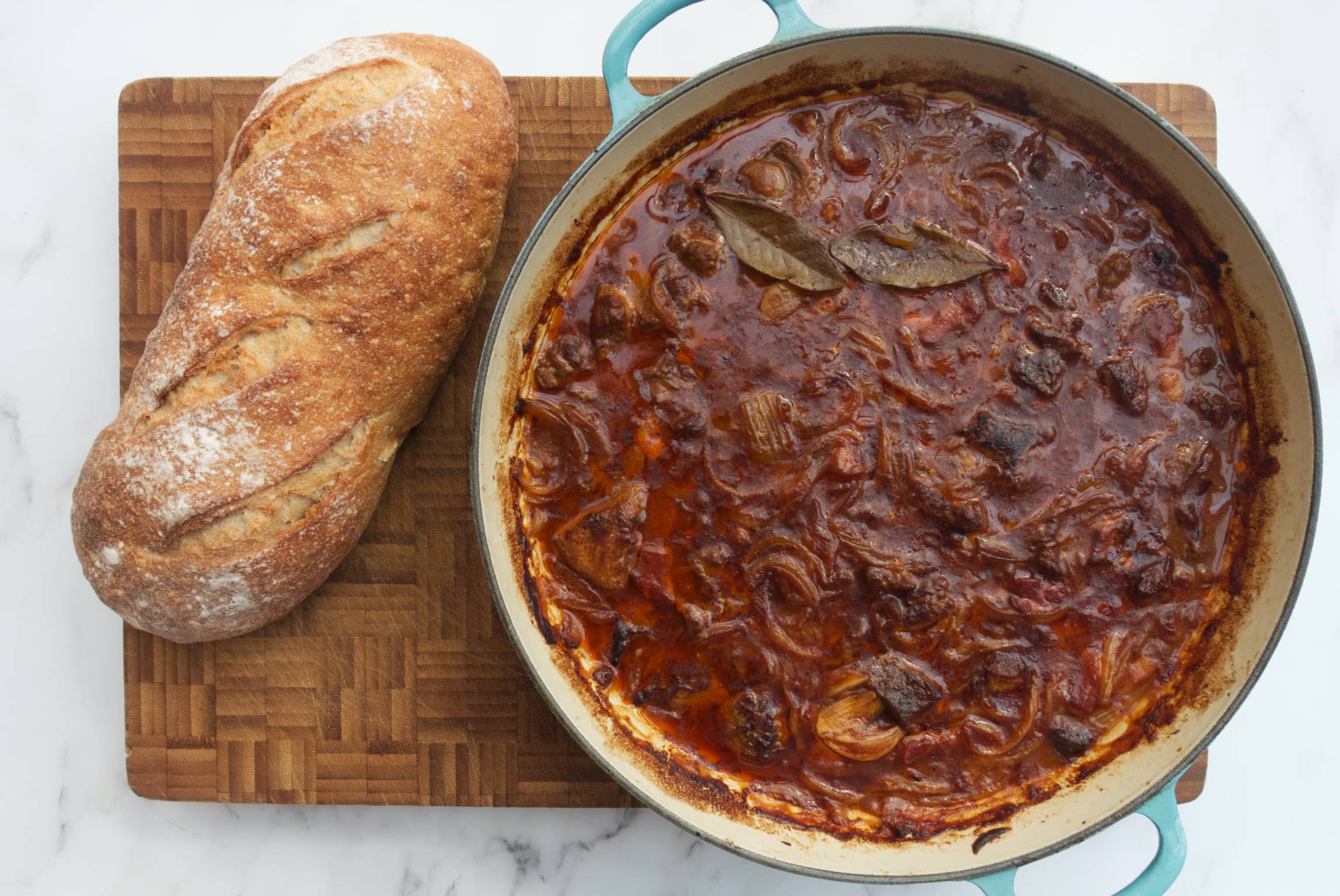‘Casseroles,’ Julia Child wrote to her long-term penpal Avi DeVotos, ‘I even hate the name, as it always implies to me some god awful mess.’ On this, Julia and I are in full agreement: I have a real problem with the word ‘casserole’. And ‘stew’ for that matter. Both of them sound so unappetising, so school dinners. But Child and I are also aligned in our hypocrisy, because actually, deep down, I love a casserole, as long as you call it anything else.
Like me, despite her vocal opposition to the casserole, Child loved bourguignons and carbonnades, coq au vin and poulet poele à l’estragon, and wrote about them with enthusiasm and appetite. Of course, all of these are casseroles, just with fancy (or specific) names. I’m aware then, of how silly – and, frankly, pretentious – it is to object to the term. But the word is so off-putting. It sounds slimy to me, gloopy, and like it will probably contain some kind of frozen veg mix, and thickening granules. A rose by any other name may smell as sweet, but a casserole is distinctly less appetising than a bourguignon.
Really, of course, a casserole or stew is just a dish that is braised slowly on the hob or in a low oven. Usually, this means that the meat is tender and falling apart, the veg is softened, the beer, wine, stock or water has thickened into a rich sauce, and all the constituent ingredients have had time to get to know each other, and become greater than their parts. It’s an economical way of making meat and veg go further, but it also brings out the best in hard, root veg, and cheap cuts of meat that need to be cooked slowly to break down their muscle and fat.
Despite my semantic objections, there’s no better way of cooking. And I know that as autumn arrives – and here, after a week of non-stop rain and dropped temperatures, it has made its presence firmly known – there’s nothing I’d rather eat than a slow-cooked dish that has filled the house with beautiful, savoury scents.
I have a particular soft spot for carbonnade à la Flamande – I think because really it is a Flemish version of the beef and brown ale stew I grew up on in Newcastle. Carbonnade à la Flamande is a beef and onion stew that comes from Belgium. It is made with dark belgian beer (ideally Trappist) and is slowly cooked until dark and sticky, with a rich gravy that was made for dunking bread into or swooping chips through. This being a Belgian dish, it is most usually served with frites. It’s best made with beef shin, a cut which will break down and almost melt into the stew as it slowly cooks, but it’s still excellent with any kind of braising beef; the meat will still be tender and full of flavour, it will just retain slightly more of its shape.

Carbonnade à la Flamande
Makes: Enough for four
Takes: 20 minutes
Bakes: 3 hours (on the hob)
200g smoked lardons
2 tablespoons vegetable oil
1 large onion, sliced
800g beef shin or stewing steak
2 tbsp plain flour
1 tbsp tomato paste
2 cloves garlic, crushed
330ml belgian beer
400ml beef stock
½ tbsp Dijon mustard
1 tbsp dark sugar
2 bay leaves
- Place the lardons in a large casserole dish, and place over a medium heat, cooking until the lardons crisp. Lower the heat, add a tablespoon of the vegetable oil, and cook the onions until they are soft but not yet coloured. Set the lardons and onions to one side.
- Add a second tablespoon of vegetable oil to the casserole dish, and brown off the beef in batches (don’t overcrowd the pan, as the beef will steam rather than brown).
- Stir the flour into the browned beef, return the lardons and onions to the pan, and add the tomato paste, garlic, mustard, beer, beef stock, sugar and bay leaves. Season generously with salt.
- Bring the whole mixture up to simmer, then cook for 3 hours. Give the casserole a good stir. The liquid should be glossy and coat the back of a spoon – if it’s too thin for your tastes, you can continue to simmer it for another 30 minutes. Once the sauce thickness is to your liking, taste and correct the seasoning if necessary. Remove the bay leaves and serve.







Comments